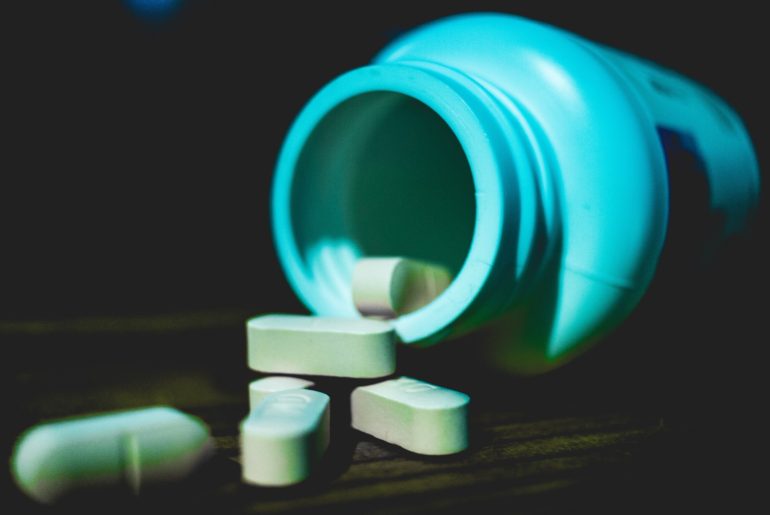Is your biology really responsible for your depression?
Medication is responsible for curing some truly awful diseases and illnesses. But, somewhere along the way society has become “too” addicted to medication. This is especially true for antidepressants.
Antidepressants have a purpose but more and more they’re being used to solve problems that they weren’t intended for.
Read on to see why we’re being left in a state of limbo when it comes to treating depression, and how a combination of our addiction to quick fixes and the chemical imbalance diagnosis is preventing us from properly treating it.
Please note I’m not a doctor!! If you’re considering taking antidepressants to help you treat your depression I’m not suggesting you shouldn’t take them. What I am suggesting though is for you to be aware of the tricks that are being utilised just to sell more medication. And not to fall into the trap of thinking antidepressants will solve your deeper issues.
We live in a world obsessed with quick fixes. Everywhere you look people are being convinced that quick fixes work. How often do you see advertisements promising rock hard abs in just two workouts, or claims of making you rich overnight? And all with zero proof.We’ve all been deceived into thinking a quick fix will work at some point. However, sometimes they aren’t so obvious. Take antidepressants for example. More and more people are being prescribed antidepressants with a diagnosis of having a chemical imbalance. But is there any validity to the chemical imbalance diagnosis or are drug companies just using it to sell more medication?
Antidepressants shouldn’t be thought of as a quick fix. But the manner in which they’re frequently being used is. Since their inception they’ve been on a steady rise, because more and more people are being subtly convinced that antidepressants will treat their depression.
Instead of antidepressants being prescribed to help sufferers lift their mood and gain some relief, they’re being used as a cure. They’ve become modern medicine’s quick fix. But the reality is, for most people, they’re nothing more than a band-aid solution.
“Nearly every depressed person is presented with the idea that his or her underlying problem is a correctable chemical imbalance” ~ Jonathan Rottenberg
Admittedly, it felt better thinking my biology was at fault and that a tiny pill would solve all my problems. The diagnosis of a chemical imbalance gave me an excuse to blame my biology, take the quick fix and go on ignoring the real root of the problem.
I continued to battle depression on and off for years. Every time I beat it, it’d return. So I went to see more doctors, who encouraged stronger medication, but all it did was make me feel numb.
After doing my own research, and speaking to many other people with depression, I kept finding that we all suffered from the same mysterious cause of depression.
“If a psychiatrist says you have a shortage of a chemical, ask for a blood test and watch the psychiatrist’s reaction. The number of people who believe that scientists have proven that depressed people have low serotonin is a glorious testament to the power of marketing” ~ Jonathan Leo
According to the world health organization more than 300 million people worldwide suffer from depression. You do the math!! If more people believe their depression will be cured by medication, then more people will buy antidepressants, and pharmaceutical companies make more money. See the trap?
“Patients [have] been diagnosed with ‘chemical imbalances’ despite the fact that no test exists to support such a claim, and there is no real conception of what a correct chemical balance would look like” Dr David Kaiser
If a chemical imbalance doesn’t exist and testing for it doesn’t exist, then practically anyone can be prescribed antidepressants. This means anyone who presents to a doctor with symptoms of depression can be prescribed antidepressants on the spot with a diagnosis of, you guessed it…“a chemical imbalance”. This isn’t hard because the symptoms of depression are so broad that everyone will experience at least one in their lifetime, i.e. low mood, feeling down, anxious, tired, etc. As it turns out depression is just part of the human experience.
Now let me make something clear, being told you have depression as a result of a chemical imbalance doesn’t mean you don’t have depression. It just means antidepressants aren’t necessarily the answer.
I’m also not here to vilify antidepressants. They can be a godsend when depression robs life of its joy and makes it hard to muster up the energy just to get out of bed in the morning. The point I’m stressing though is they should only be used when they’re necessary. Taking an antidepressant won’t make your deeper issues go away.
“Two-thirds of those treated with antidepressants continue to be burdened with depressive symptoms” ~ Jonathan Rottenberg
So if you’re thinking about taking antidepressants consider this first: do you need antidepressants or has someone just convinced you that you need them?
If you’re already taking antidepressants and you’re considering coming off them please remember to never, ever, just stop taking them/quit cold turkey!! Doing so is incredibly dangerous.
- More and more we’ve become addicted to quick fixes.
- People who’re told they have a chemical imbalance are far more likely to accept antidepressants as a treatment option.
- There’s no truth to the diagnosis of a chemical imbalance.
- Antidepressant medication is a gold mine for pharmaceutical companies.
- Antidepressants won’t treat the cause of your depression. But they can help elevate your mood, giving you the strength to help treat the cause.




Comments are closed.